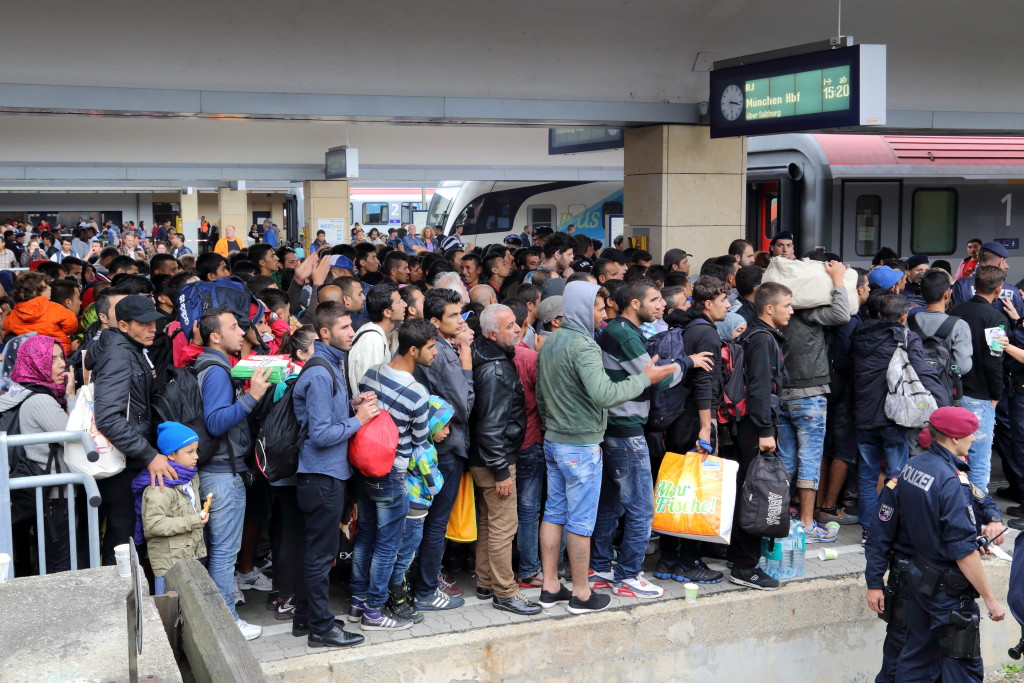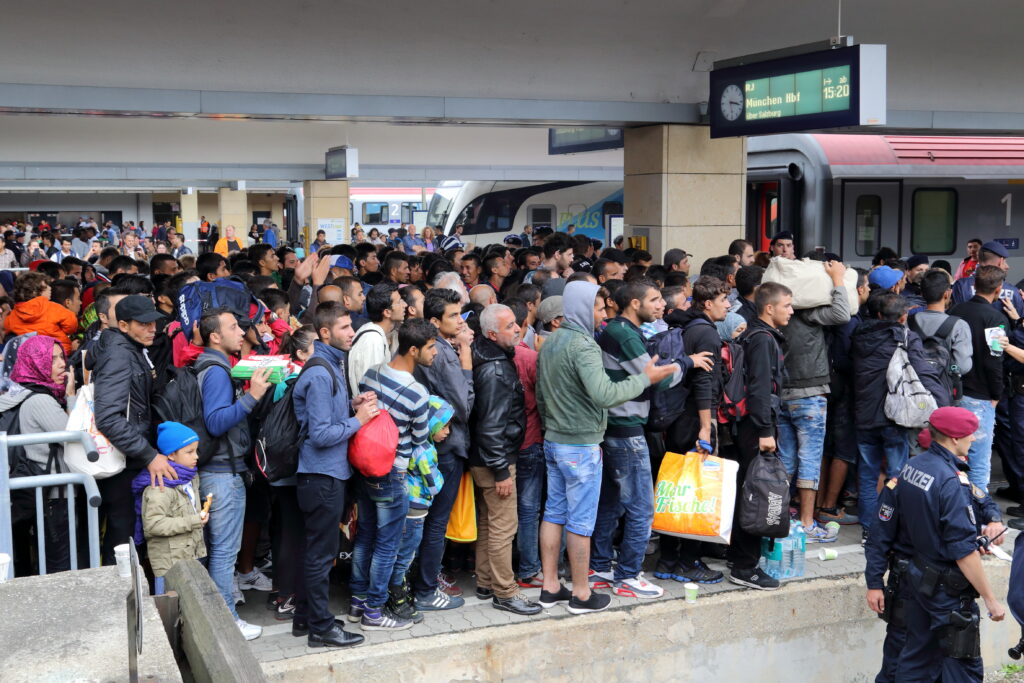
The European Union has recently taken crucial steps towards a more humane response to the ongoing refugee crisis, which, despite being a positive development, seem to endanger existing EU asylum law and border systems. It is time for EU policymakers to face political and societal differences of member states and to shape the discourse of the crisis along the lines of the EU’s basic humanitarian and human rights principles. If this defining moment passes without the formulation of a common vision, sentiments of nationalism, right-extremism, Islamophobia and xenophobia will grow and European integration will regress.
On September 5, Germany opened its borders to all “illegal” Syrian refugees, temporarily suspending the national rule of the Dublin Regulation. Hungary is often the country of first entry (due to external borders) and is therefore responsible for processing many of the asylum requests; in waiving the rules of the Dublin Regulation, Germany urged Hungary to apply “higher standards” to respective refugees and to let them pass through the country. This move was vehemently criticized, especially by Hungary’s right-wing, Eurosceptical and anti-migration Prime Minister Viktor Orban, who criticized Germany for failing to deter refugees and to eventually preserve Europe’s Christian identity.
Germany has set a precedent of acting on humanitarian principles by unilaterally welcoming Syrian refugees and creating legal ways to enter the country. One could argue that this helped the European Commission (EC) gain legitimacy in formulating the innovative EU Quota Plan for redistributing 120,000 refugees across the union from the severely overburdened countries of Italy and Greece. The EU Quota Plan is based on the model of the Königsteiner Schlüssel (meaning key), a quota system used to distribute asylum seekers across the Länder (states) in Germany since 2012. The EU interior ministers adopted it on September 22 by a qualified majority vote (with vetoes from the Czech Republic, Hungary and Slovakia, and the abstention of Finland). On September 23, Slovakia initiated a legal challenge against the plan, which is seen by Slovak Prime Minister Robert Fico as a “dictate of the majority.” Hungary also opposed the concept of redistribution and pushed for an alternative plan based on the creation of an EU-wide fund to financially support highly burdened states.
EU leaders should evaluate whether imposing the plan on Hungary, Slovakia and the Czech Republic(although the latter voiced concerns not to let Europe “fall apart”) is politically and ethically feasible. Coercing the quota plan on states is likely to fuel resentment against decision-makers in Brussels and strengthen nationalists concerned about state sovereignty. Nationalist Eastern European leaders, for example, base their radical stance on the overall atmosphere in their societies, characterized by fear of the “Islamization” of Europe or the loss of Europe’s Christian identity. These xenophobic sentiments have grown from the societies’ memories of World War II, when Jewish refugees were seen as “harbingers of a dangerous ideology.”
Eurosceptics have argued that the disunity among member states as well as the reinstatement of national borders may lead to the end of the Schengen Agreement (border-free area in Europe) and possibly the end of the Dublin Regulation. A hardline Eurosceptic Member of European Parliament said in an interview that “Schengen is dead.” On the other hand, supporters of the EU’s current policy direction speak positively about the future of Schengen and consider the current reintroduction of border checks as temporary. This discourse emphasizes the EU’s potential to successfully manage the crisis.
However, it is highly unlikely and very undesirable for Schengen to cease in the long run, for the following reasons.
Firstly, Bavaria’s Seehofer announced that Schengen is only temporarily suspended (in accordance with EU law) due to the existing “emergency” of an overflow, and that German borders will be taken down again after the situation in the south of Germany is more under control. Trains are already taking refugees from Munich further north, in order to unburden the south and dissolve the immediate emergency. After the resettling under the quota, borders will be taken down again.
Secondly, research suggests that borders do not prevent refugees from crossing several countries before settling at their intended destination. There are many ways to circumvent controls and illegally enter a country, through for instance the Balkans, Turkey and Greece. It is naïve to assume that borders are effective deterrents. The creation of Schengen did not function as an “invite” to refugees—they leave their home countries in times of severe crises or civil war such as during the Balkan Wars.
Thirdly, the area of free movement of goods is beneficial to all member states in terms of trade, labor, education and tourism. The abandoning of borders was also a major step for European Integration and shaping a European identity, due to economic, political, cultural and societal interaction among all member states. The reinstatement of borders would reverse this process to a detrimental extent.
However, the second cornerstone of EU asylum law, the Dublin Regulation, should be critically rethought in order to create a more equal system. The Quota Plan is a positive development in terms of burden-sharing and a unified solution. A next step should be a quota that distributes refugees “upon arrival,” according to the capacities of member states (as used for the Quota Plan), family members that are already in an EU country and other member states or individual needs. For this, the Königsteiner Schlüssel could again be applied to the whole of the EU.
Additional steps should include financial and logistical support of Turkey, Lebanon and Jordan in order to improve refugees’ situation there, and the push-factors for refugees not to stay in countries like Hungary should be addressed. Currently, refugees are most likely to end up in detention camps or to be sent to “safe” third countries before proper consideration of applications.
EU leaders bear great responsibility in pushing the humanitarian discourse of the crisis and to be more persuasive than their Eastern European counterparts. Moral and legal responsibilities should be publicly emphasized. Public awareness should be raised about why the Schengen zone will and should survive. Finally, the value of refugees as potential labor force to counterweigh the EU’s ageing population should be emphasized. The EC’s announcement to indict breaches of responsibilities under EU asylum law, and Merkel’s assertion that “if we now have to start apologizing for showing a friendly face in response to an emergency situation, then that’s not my country” are signs that joint action and strong leadership are on the horizon.
The views expressed by the author do not necessarily reflect those of the Glimpse from the Globe staff, editors or governors.







